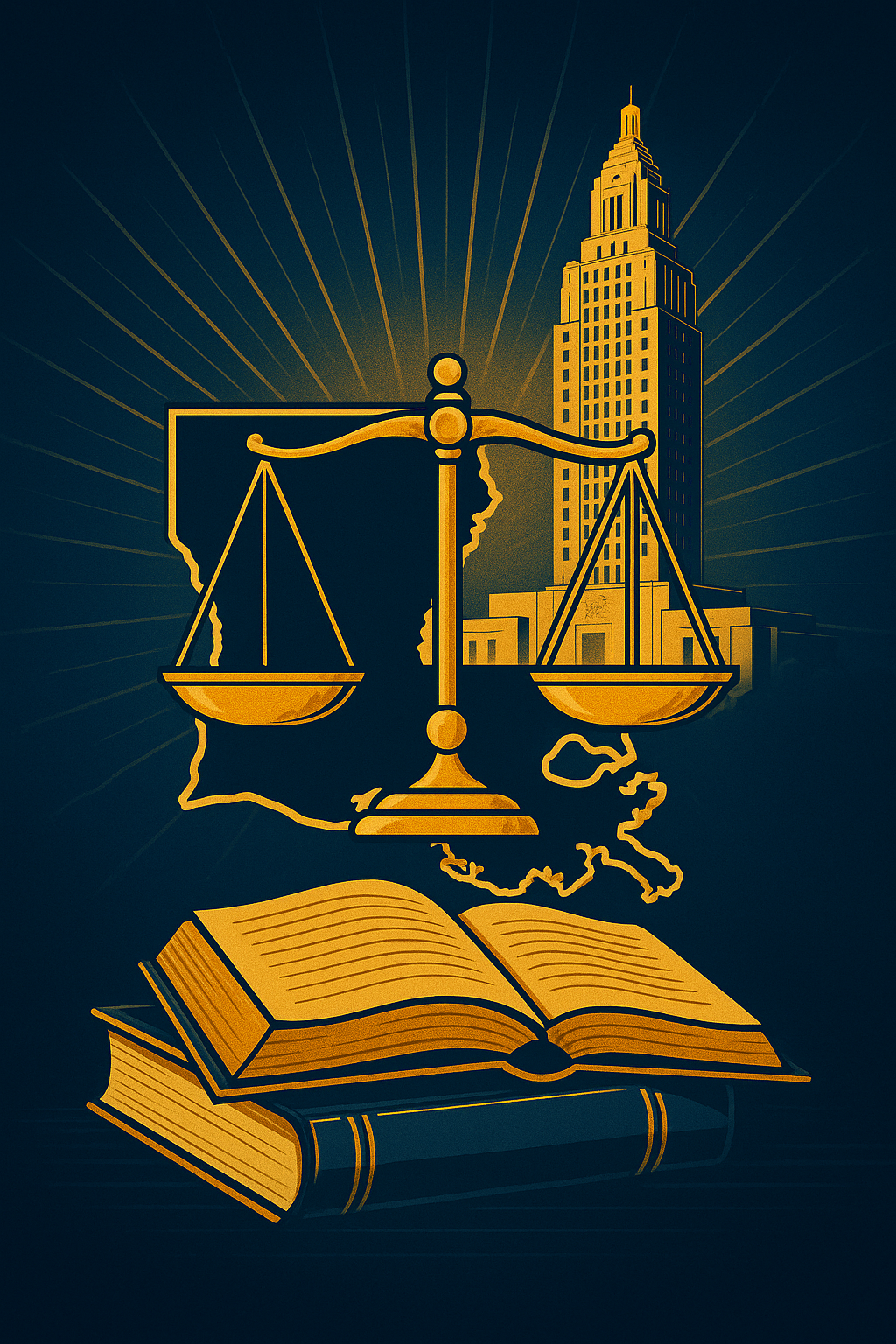 The Building Blocks of Justice: How Louisiana Laws Are Made
The Building Blocks of Justice: How Louisiana Laws Are Made
Louisiana’s legal system is unique, drawing heavily from its Civil Code tradition. Unlike many other states that primarily rely on ‘common law’ (judge-made law), our system is rooted in comprehensive written statutes. But where do these rules come from, and how do we interpret them? Understanding the foundational principles of Louisiana law, as laid out in the Louisiana Civil Code, is key to knowing your rights and obligations.
Legislation: The Primary Source of Our Laws (Louisiana Civil Code Article 2)
When we talk about laws in Louisiana, we primarily refer to legislation. Civil Code Article 2 clearly defines legislation as “a solemn expression of legislative will.” In simple terms, this means the laws formally passed by our elected representatives in the Louisiana Legislature and signed by the Governor. These are the statutes, codes, and acts that govern everything from contracts and property to family matters and personal injury. They are written, publicly available, and intended to provide clear guidance for citizens and courts alike.
The Role of Custom: An Important, But Secondary, Source (Louisiana Civil Code Article 1)
While legislation is paramount, Civil Code Article 1 acknowledges another source of law: custom. But what exactly is a legal custom? It’s not just “how things have always been done.” Legally, a custom refers to practices that have been long-established, consistently observed, and widely accepted by the community as having the force of law. For a custom to be legally recognized, it usually needs to be reasonable, known, and consistent. Think of certain business practices or local traditions that, over time, become an unwritten rule that people generally follow and expect others to follow.
When Legislation and Custom Meet: Legislation Always Prevails (Louisiana Civil Code Article 3)
This brings us to a crucial point, brilliantly clarified by Louisiana Civil Code Article 3: “Customs may not abrogate legislation.” This short, powerful statement is incredibly important. It means that while customs can be a source of law, they can never override, repeal, or nullify a written law passed by the legislature. If there’s a specific statute on the books, no matter how widespread a custom might be, the legislation always takes precedence.
For example, imagine a neighborhood where everyone has, for years, informally agreed to park their cars on the sidewalk on weekends. If a new city ordinance is passed explicitly prohibiting sidewalk parking, the long-standing custom of parking there would immediately be overridden by the new legislation. The custom, no matter how ingrained, cannot abrogate (cancel out) the written law.
Why This Matters to You
Understanding the hierarchy of legal sources in Louisiana is vital. It means that when you have a legal question or dispute, the first place to look is always to the written law – the legislation. Customs can offer context or fill in gaps where legislation is silent, but they can never contradict it. This principle ensures consistency, predictability, and fairness in our legal system, preventing uncertainty that could arise if unwritten traditions could simply undo formal laws.
Need Legal Guidance? Contact Us Today.
Navigating the intricacies of Louisiana law can be complex, even for seemingly straightforward situations. Whether you’re dealing with a contract dispute, property issue, or any other legal challenge, understanding how legislation and custom apply to your specific case is critical. Don’t rely on assumptions or “how things have always been done.” Our experienced legal team is here to provide clarity and protect your interests. Contact us today for a consultation to discuss your legal needs.
Written by Berniard Law Firm
Other Berniard Law Articles on the Louisiana Civil Code: The Two Pillars of Louisiana Law: Legislation & Custom Explained (CC Arts. 1-3)
and The Foundations of Louisiana Law: Where Our Rules Come From
 Insurance Dispute Lawyer Blog
Insurance Dispute Lawyer Blog

